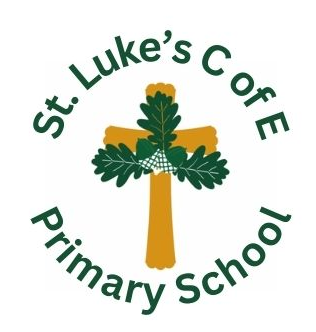Geography
Geography Purpose of Study
The National Curriculum for Geography aims to ensure that all pupils:
- Develop contextual knowledge of the location of globally significant places – both terrestrial and marine – including their defining physical and human characteristics and how these provide geographical context for understanding the actions of processes
- Understand the processes that give rise to key physical and human geographical features of the world, how these are interdependent and how they bring about spatial variation and change over time
- Are competent in the geographical skills needed to:
- Collect, analyse and communicate with a range of data gathered through experiences of fieldwork that deepen their understanding or geographical processes
- Interpret a range of sources of geographical information, including maps, diagrams, globes, aerial photographs and Geographical Information Systems (GIS)
- Communicate geographical information in a variety of ways, including through maps and writing at length
Geography Intent
A high-quality Geography curriculum should inspire in pupils a curiosity and fascination about the world and its people that will remain with them for the rest of their lives. Teaching should equip pupils with knowledge about diverse places, people, resources and natural and human environments, together with a deep understanding of the Earth’s key physical and human processes.
At St. Luke’s, the Geography curriculum has been carefully sequenced so that as pupils progress, their growing knowledge about the world should help them to deepen their understanding of the interaction between physical and human processes, and of the formation and use of landscapes and environments. Geographical knowledge, understanding and skills provide the frameworks and approaches that explain how the Earth’s features at different scales are shaped, interconnected and change over time. We want our children to enjoy and love learning about geography, not just through experiences in the classroom, but also providing opportunities for fieldwork investigation and enquiry.
Geography Implementation
Following the ‘Development Matters’ guidance in EYFS, Reception children gain an ‘Understanding of the World; people and communities; the world and technology’ and come into KS1 with the foundations laid for Geography. At St. Luke’s Primary School, we implement a Geography curriculum that;
- meets the objectives outlined in the National Curriculum , a copy of which can be found here
- is progressive throughout the whole school, with three distinct milestones of KS1, LKS2 and UKS2. Each milestone will include objectives from three threshold concepts: Geographical Knowledge, Geographical Understanding and Geographical Skills and Enquiry
- is delivered on a half-termly timetable. As such, approximately 30 hours of Geography is taught each academic year
- has key progressive, Geographical skills embedded into each unit, providing opportunities for retrieval practice of prior knowledge and vocabulary
- provides whole class differentiation through questioning and various methods of recording
- is enhanced by trips, visiting experts and fieldwork where appropriate
Geography Impact
Our Geography Curriculum is high quality, well thought out and planned to demonstrate progression. Children’s knowledge and skills will develop progressively as they move through the school, not only developing a deep knowledge, understanding and appreciation of their local area, but also its place within the wider geographical context. Children will become more analytical and improved critical thinkers. We measure the impact of our Geography curriculum using the following measures:
- Evidence from children’s books will show a broad and balanced Geography curriculum, demonstrating appropriate pitch and challenge. Standards in Geography will be high and will match standards in other subjects such as English and Maths.
- Our Long-Term Plan (LTP) will show a clear progression of knowledge and skills across Key Stage 1 and 2 that builds on prior knowledge
- Pupil discussion about their learning
- Termly teacher judgements track progress and inform subsequent planning
St. Luke's Values in Geography
Through their study of Geography, the St. Luke’s Values are realised, ensuring that we enable every pupil to FLOURISH:
Friendship: By working collaboratively in fieldwork and enquiry, pupils develop teamwork and cooperation. They learn how communities around the world depend on strong relationships to thrive.
Love: Through studying the environment and issues such as sustainability, pupils learn to love and care for the planet and understand their responsibility to protect it for future generations.
Originality: Pupils use creativity to present geographical data and findings in innovative ways (maps, models, digital presentations), showing originality in how they communicate their understanding.
Understanding: By exploring diverse places, people, cultures, and environments, pupils develop empathy and a deeper understanding of how and why lives differ across the world.
Resilience: Pupils examine how individuals and communities show resilience in the face of challenges such as natural disasters, climate change, and environmental pressures.
Integrity: Geography teaches respect for evidence: pupils critically analyse data, maps, and sources to form fair conclusions, particularly around global issues like climate change and sustainability.
Selflessness: Pupils consider how decisions at local, national, and global levels affect others, learning to balance their own needs with those of communities worldwide.
Hard Work: Pupils are expected to research carefully, think critically, engage in discussion and debate, and apply diligence to fieldwork and enquiry tasks to deepen their geographical knowledge.
